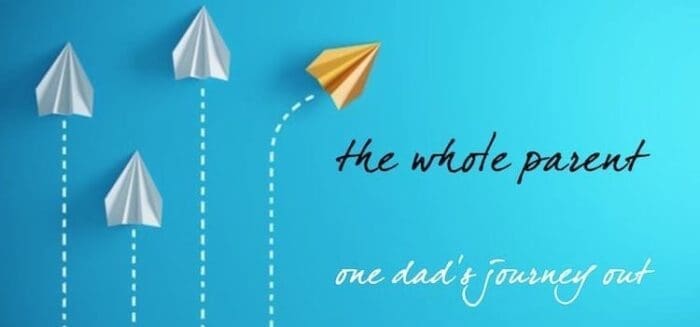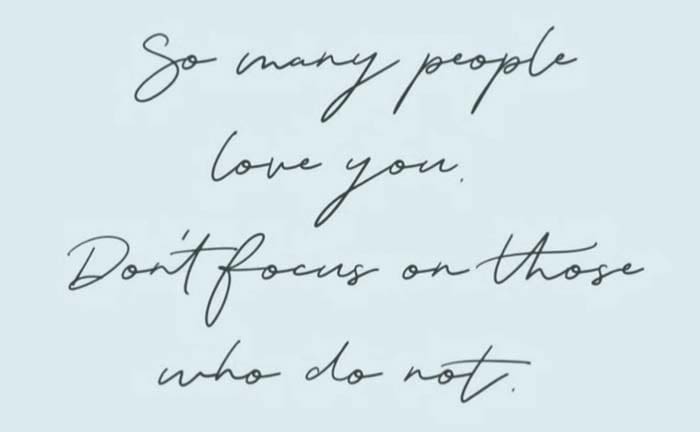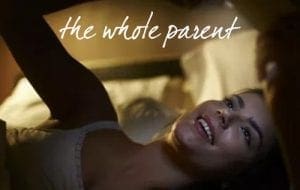There are many reasons for us to be sad. So many, I don’t even need to count them off for you. Besides, mine a bit different than yours.
When You’re Young You Get Sad
I have a memory of around 1st and 2nd grade of being extremely sad. My parents had moved me from kindergarten where I had all my friends out to the school district named after our water feature, Westlake. It’s the name of wealth in Austin. I left old money, Tarrytown, to expand into new and bigger money. I loved 1st grade, I was beginning to notice girls on the playground and chase them around.
I associate the sadness with my home and school move out to the lake house. By that time my favorite sister would’ve been a senior in high school. Turns out by then she’d been shipped off to a posh school for girls in Dallas. But, something else was eating me. My father was getting more and more angry and drunk before he got home from work. It was permeating the house, his anger, and the destruction of our excitement at being in the new house.
Somewhere during this timeline, I entertained the idea of jumping off one of the three nearby radio towers blinking slowly into the heavens at night. A sad-ass seven-year-old. So sad, in fact, that my mom began driving me back into town to rejoin my friends back in Austin. The fog of rage and secrets back at home was taking its toll on me.
Two more distinct memories from the new school experience back in Austin:
- A girl in my grade was showing her summer victory, an autograph from David Cassidy. Everyone was huddling around her. So excited. I ran in and took the slip of paper and ran off crumpling it up. I was taken to the principal’s office. My mom came back from the lake and picked me up. (September of 2nd grade)
- I was called into the office one afternoon during recess a few months later. I don’t remember the meeting, but I learned that my mom was taking me and my brother and two sisters to Switzerland for Christmas. Oh, yeah, and my dad wouldn’t be coming. (November of 2nd grade)
How all this bad stuff led a preteen boy to begin contemplating suicide from a radio tower, I don’t quite understand where the idea came from. I learned to do a killer swan dive that summer at the country club. In my feelings of sadness and dread of the coming hurricane of divorce, I began to detach from the happy rich kid. The alcoholic abuse was only verbal at this point. My dad was an angry drunk. He blamed everyone for his anger.
Leaning Into the Sadness
Yadda yadda, my parents got divorced, my dad was an abusive alcoholic, yadda yadda. We’ve all been there, right? Certainly, I’ve told the story in so many ways that I’m tired of it. I’m telling a slightly different story today. I learned that sadness and loneliness were my friends. I became isolated in the most amazing lake house in an affluent city. Alone, mainly, with my mom who was sober and bitter. Mostly, however, she was terrified. My dad was threatening to sue her into the ground if she went through with the divorce. It was a horror show in the house with the big glass.
A vivid moment from that moment in between the separation and the divorce war, my dad got an apartment in a highrise building near the University of Texas. I spent a few overnights with him there. We flew paper airplanes off the 12th-story balcony. At night my dad would start a sad sloppy ritual of drinking and listening to Charlie Pride (“Have you seen the most beautiful girl, who walked out on me…”) I tried to go to sleep. I watched my father crying and drinking himself into oblivion. This would’ve been the summer before 2nd grade.
From the school of “alcoholic dad, broken mom” I learned that bad things happen. In that room with my father pretty much out of his mind, he said, “I’m coming back. I’m going to give it another try with your mom.” I was pretending to be asleep, a maneuver I learned from earlier drunk dad moments. “I’m coming back for you.” For real, Dad? You’re giving your rising 2nd-grader a sick message. He came back to the house of glass and within two weeks, my mom took my oldest sister and escaped to Mexico. I was in the house with my dad and my younger sister until summer camp started. Now, I watched the other side of the alcoholic disease, the codependent. My mom was more of a frightened ghost as she moped around the house. She couldn’t handle it. She bolted. She left me behind with my alcoholic father who was falling apart again in front of my eyes. (Hmmm. A swan dive off a radio tower would show them.)
The Longing Disease
I have longed to refind that love, that home again. For a few years, before our kids were in school, I believed I had it all. A loving wife. Two kids. A house in a great school district. I was a long way from a house on the lake, but I was in my childhood school district for the wealthy, Westlake. I believed I could make it through anything. I worked on myself. I worked on my marriage. I got my wife into couples therapy. Twice. And, I failed. Or, more accurately, we failed. I don’t blame her 100% for the divorce, I was unhappy too.
I do blame my ex-wife for not being honest in couples therapy. I blame her for seeking legal advice before revealing she was considering divorce. Again, in couples therapy, that’s the shit you’re supposed to share and work on, together, as a couple. She was keeping a lot inside. And if you’ve ever been in couples therapy, there is a way for one person to raise a crisis over and over again to keep the focus away from their own struggles.
I was divorced in August of 2010. Exactly 13 years ago. And it’s not uncommon for people to learn about my writing and ask, “When are you going to get over your divorce?” I chuckle now. But for a while, I thought they had a point.
The point is different from what I imagined it to be. The point is about happiness vs loneliness. Angst and stress versus peace and balance. I am still very involved in my divorce as I parent my kids in college. My ex-wife and her new husband are poor parents. I was marginalized as a parental force by their vitriol and exclusion. I was not included in any “family” decisions after her “boyfriend” and then “husband” showed up. He took over for all of us.
So, I am not “over it.” I’m still processing the *bs* that occurs on a weekly basis from my kids’ nuclear-family parents. I am more of a consultant or influencer. The authority was moved to Mom’s house and then Mom and her husband’s house, early on in the divorce. Yes, it’s true. I’m still working out issues from my divorce. The mfkrs are still making terrible decisions. Why they are still sewing descent between me and my kids is unclear. I’m guessing here, but I think they don’t like the raw honesty of this blog. They are punishing me a bit, for being a divorce journalist. But they are hurting themselves and their future relationships with our kids, by their warped values and narcissistically-reinforced decisions.
Not only have I been struck with the longing disease, my kids are also prone to sadness. One of my kids is suffering mightily from the lack of integrity and healthy relationship modeling. He’s a mess. They are both OCD stoics. There is little or no emotion in the house that my kids grew up in. I was the warmth and heart in the family. I was marginalized. I am no longer stuck in longing for my kids. And, in the last two years, I’ve pulled up out of my longing for “home” as well. I’ve moved into a new phase of my development as a recovering ACoA. (Adult Children of Alcoholics).
A New Home for My Sadness
We all deal with sadness and loneliness. It’s one of our human conditions. Getting free of all sadness is not a goal for most of us. How we listen to sadness and learn to unravel the hurts still seeking release from our bodies, is how we get over depression and loneliness. I’m learning to listen. And part of my listening is writing about what’s going on in my mind. Yes, this is a bit of a long journal of my divorce and rebirth. And, it’s a place of great joy and happiness.
When you find home (“a safe place for the release of joy and sadness with people you love and trust”) things begin to get better. It’s possible to cling to the pain and issues of your childhood or past relationships, but it’s better to get them up and out. Talking, sharing, writing, about your “epic” journey back from depression or addiction is part of the process of healing.
There’s no miracle drug for depression. Alcohol makes it worse. In hindsight, my father was probably bipolar. He medicated himself with endless coffees in the morning and a necessary number of cocktails in the evening to unwind.
In my happy house, I have a girlfriend who’s agreed to marry me. (No dates, just rings, at this moment.) I am sitting here writing from my own house, with her two dogs huddling around me, as she’s starting the new school year, with kids arriving tomorrow morning. My job is good. My health is better and better. My joy is exploding. And my exploration of the edge of sadness, the edge of the unknown, is made possible by the stability and confidence I feel about my secure attachment.
I am as happy as I’ve ever been. And today, I have plenty of work, I have a tennis/cardio workout, and an AC that blows cold as Texas days heat up like the surface of Mars. I’m good. Thanks for listening.
Always Love,
John McElhenney – life coach austin texas
Facebook | Instagram | Pinterest
Related posts:
- Divorce Lessons: Thanks for the Jetpack, Where’s the Fuel?
- When I Stopped Believing – And Started Growing Up
- Cherry PopTarts and Love (fathers & daughters in divorce)
- 8 Lessons from My First 2 Divorces





You can find all of my books on AMAZON.